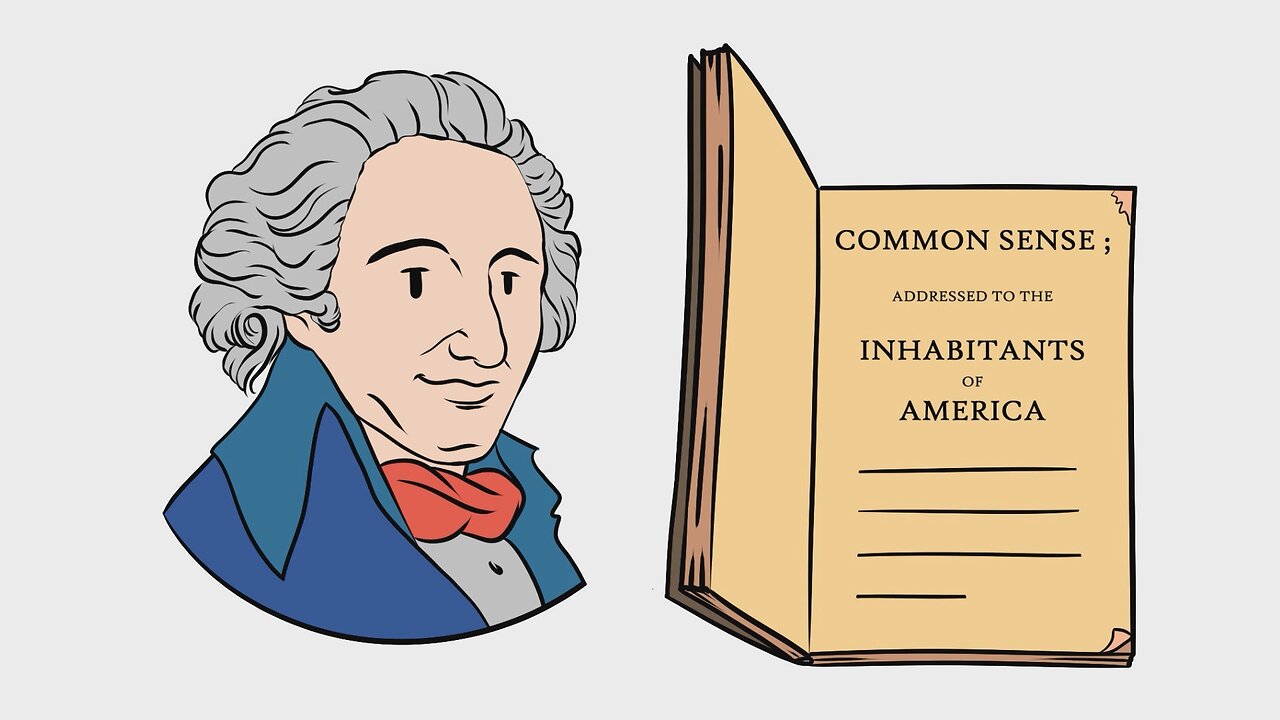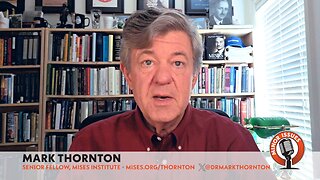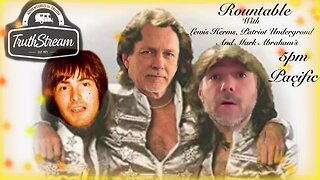Premium Only Content

What is an Empire?
In January 1776, Thomas Paine published Common Sense, which urged colonists to declare independence from the British Empire. In the introduction, Paine wrote:
“The Cause of America is in a great measure the cause of all mankind. The laying a Country desolate with Fire and Sword [and] declaring War against the natural rights of all Mankind is the Concern of every Man to whom Nature hath given the Power of feeling.”
Paine’s prediction proved correct. The American Revolution would continue to inspire anti-imperialist movements well into the twentieth century. But to understand America’s revolt against empire, we must first ask what an empire is.
Above all else, empires are expansionist, continually aiming to extend their boundaries. It took only two years after the first English settlement in North America for the king to claim dominion over the entire continent.
Empires are territorial. When competing empires claim sovereignty over the same area, they wage war to settle boundary disputes. Thousands of colonists died defending Britain’s territorial claims in America, which Paine saw as an indictment of empire. “Let Britain wave her pretensions to the continent,” he argued. “We should be at peace with France and Spain.”
Empires are also centralized. The British Empire stretched across the globe, but the laws governing these distant territories were decided by political elites in London. These policies included a centralized economic system known as mercantilism, which required all foreign trade to flow through England so the Crown could collect customs revenues.
In Common Sense, Paine recognized how centralized authority replaced commerce with conflict. “Europe is our market for trade,” he wrote, but “submission to Great Britain, tends directly to involve [America] in wars with nations who would otherwise seek our friendship.”
Finally, empires—like all governments—are coercive. By the 1770s, Americans could not escape the violent reality behind Britain’s efforts to compel their submission. Paine concluded his call for independence by proclaiming that “All subjection to Britain ought to have ceased” after colonists witnessed “the violence done to our persons; [and] the destruction of our property by an armed force.”
After waking up to the dangers of an expansionist, territorial, centralized, and coercive government, Americans became convinced that the greatest threat to liberty was the instrument of imperial control: a permanent, professionalized military. To understand how the United States started down its own path toward empire, we must look first to how certain political leaders overcame America’s fear of standing armies.
______________________________________
Want to learn more?
For more animated content, check out Economics for Beginners at https://BeginEconomics.org.
Check out the latest Mises Wire articles on foreign policy and war: https://mises.org/topics/war-and-foreign-policy
Anatomy of the State by Murray Rothbard is a great mini-book on the true nature of the state: https://mises.org/anatomy
The Betrayal of the American Right by Murray Rothbard focuses on the history of the modern conservative movement, and the role it played in aggressively escalating America's foreign policy in the 20th century: https://mises.org/betrayal
Wall Street, Banks, and American Foreign Policy by Murray Rothbard is a fiery monograph that employs "power elite" analysis to understand the relationship between money, power, and war: https://mises.org/library/wall-street-banks-and-american-foreign-policy-0
A Century of War: Lincoln, Wilson and Roosevelt by John V. Denson is an extensive look at how the twentieth century became the bloodiest in all history: https://mises.org/library/century-war-lincoln-wilson-and-roosevelt-0
A Foreign Policy of Freedom by Ron Paul offers a positive view for an American foreign policy would look like if it stayed true to its founding principles: https://mises.org/library/foreign-policy-freedom
-
 9:35
9:35
Mises Institute
20 days ago $0.03 earnedThe Gold-Silver Ratio | Mark Thornton
2192 -
 10:51:28
10:51:28
SpartakusLIVE
14 hours agoNEW Easter Egg, SPECIALIST || Duos w/ @GloryJean followed by quads later!
77.4K3 -
 1:39:21
1:39:21
Sarah Westall
11 hours agoRemote Viewing the Future: Quantum, Financial Reset, Transhumanism & more w/ The Future Forecasters
117K39 -
 2:18:42
2:18:42
TheSaltyCracker
12 hours agoUkraine Pokes The Bear ReeEEEStream 06-01-25
155K403 -
 2:45:56
2:45:56
IsaiahLCarter
13 hours agoAPOSTATE RADIO 016: WPATH's Pseudoscientific Insanity (feat. Mia Hughes)
78.6K1 -
 9:14:11
9:14:11
TheBeardedNerdd
11 hours ago🔴 LIVE- (Tarkov) Gaming with CRGOODW1N Streamer/Creator W/ @SelfmadeGGs
49.7K -
 2:11:47
2:11:47
TruthStream with Joe and Scott
1 day agoRoundtable with Lewis Herms, Mark Abrahams and Patriot Underground live #435
71.7K11 -
 4:33:49
4:33:49
EricJohnPizzaArtist
5 days agoAwesome Sauce PIZZA ART LIVE Ep. #49: Rumble Gaming Night featuring Scottish Viking Gaming!
61.2K4 -
 10:39:39
10:39:39
Misfit Electronic Gaming
14 hours ago $1.50 earned"LIVE" Playtest Sunday Funday Join me in testing "Rotten Sails" & Maybe some "Empyrion"
38.4K7 -
 14:29:17
14:29:17
CassaiyanGaming
20 hours ago12-Hours of Call of Duty | Sunday at 11am
25.7K7